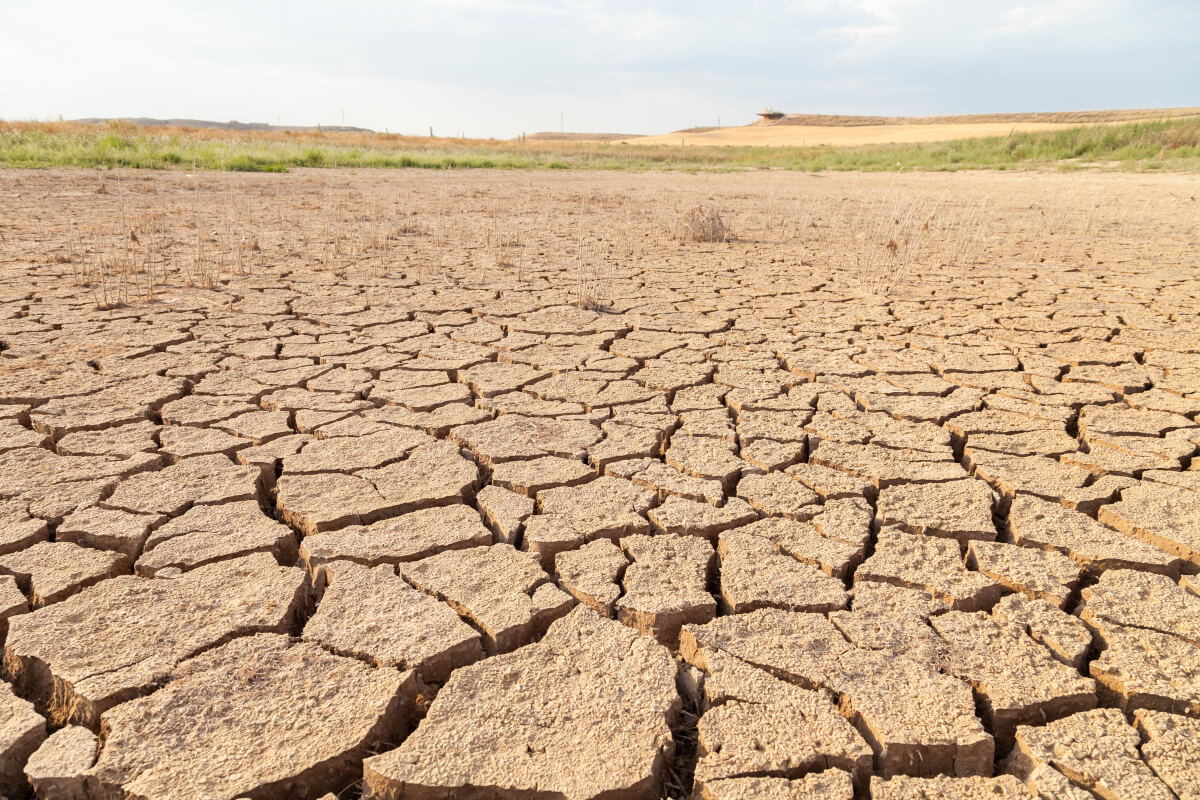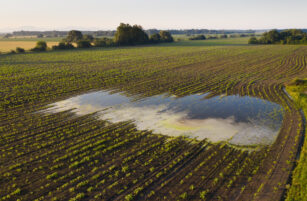Insight Focus
- Drought, government water restriction sparking rethink by brewers in North
- Government says water for brewing available in Southeast
- The relocation of breweries could have major implications for beer trade with the US.
Cervecera Constellation Brands has decided to cancel the construction of a 70% complete, USD 666- million new beer production factory in the northern city of Mexicali because of an executive order to suspend brewing operations to save water because of a severe drought. The government says there is water in the Southeast for brewers but a relocation would make exports to the US much more difficult.
President Andrés Manuel López Obrador (AMLO) ordered beer producers in northern Mexico to suspend operations to save water. “Beer is not going to be produced in the northern part of the country. If you want to continue producing beer and increase production, breweries in the southeast will have access to the Grijalva, Usumacinta, and the El Papaloapan river,” he said.
AMLO’s decree could also mean that Heineken might cancel the construction announced in June of a USD 90-million plant in the northern city of Mequoi. Heineken Mexico President Ricardo Guerra said on the issue: “No comment, opinion, or statement will be made on the subject.”
The biggest brewery currently operating and affected by this suspension order is the Cuauhtémoc Moctezuma Brewery, a subsidiary of Heineken International. It produces Dos Equis, Bohemia, and Tecate at its Monterrey plant. Smaller beer producers that operate in the northern region such as Compañía Cervecera de Coahuila, Compañía Cervecera de Obregón S, Especialidades Cerveceras Cervecería Popular, and Cervecería Artesanal de Colima will be also ordered to halt operations.
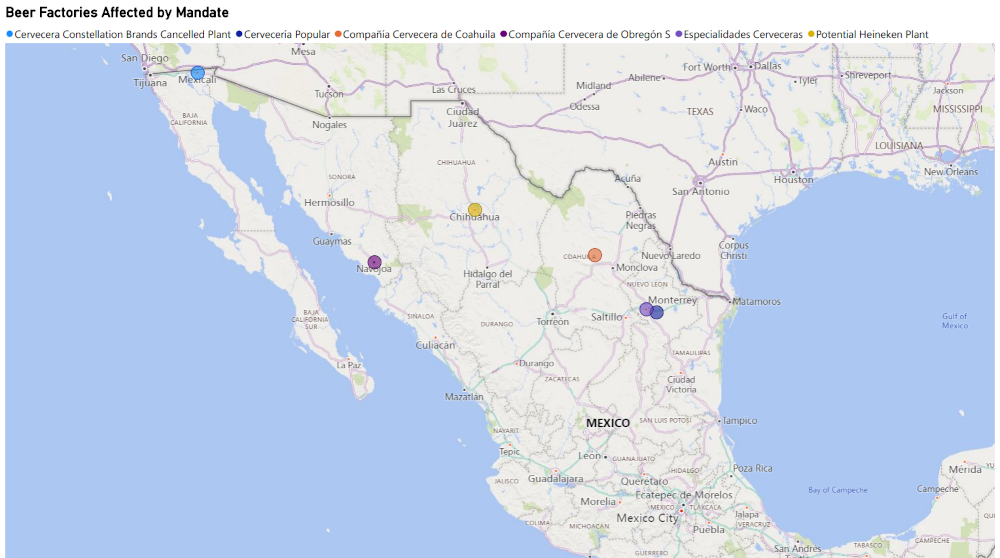
Water Shortage in Northern Mexico
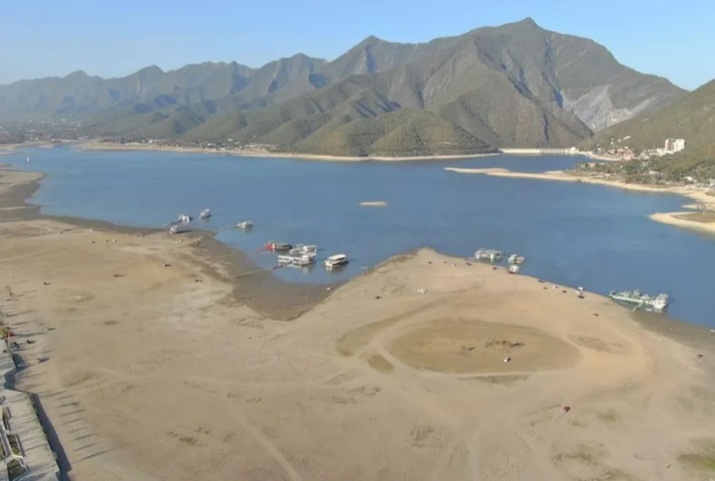
The Santiago Reservoir (El Milenio).
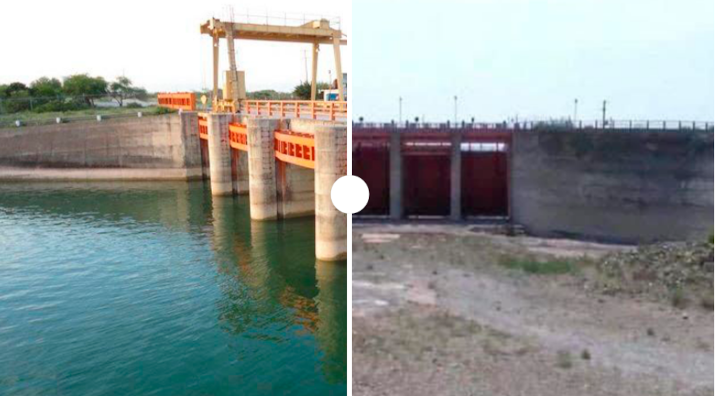
The Cierro Prieto Reservoir before and after the drought (El Financiero).
The first signs of the drought appeared in May of 2022. Since then, northern region and the rest of Mexico have received extremely low rainfall in May and July. The lack of rain has caused a water shortage in Monterrey, the capital of the drought-stricken state of Nuevo Leon. Three reservoirs provide 60% of the city’s water. Two reservoirs, El Cierro Prie o and Santiago, are almost empty. The third reservoir El Cuchillo is half empty.
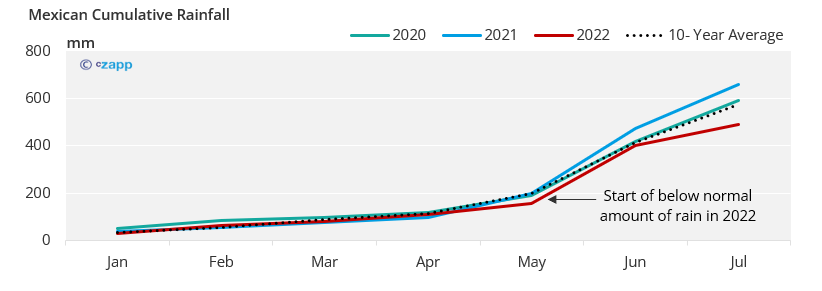
What might happen next?
Breweries operated in northern Mexico to minimize logistics costs when exporting beer to the US. A move to the south would increases brewers’ distance from the US and might force them to change their shipping methods from land to a more expensive sea transportation. This could lead to higher prices for Mexican beer in the US.
This drought has caused the National Water Commission of Mexico to declare a nationwide state of emergency. Many analysts say climate change and the La Niña weather phenomenon are responsible for the drought. If Mexico does not receive its usual rainfall in August, the government could impose more water restrictions on other private enterprises in the dry cities of Guadalajara, Sinaloa, and Hermosillo. In Guadalajara, the government could potentially force Casa Cuervo’s biggest factory, La Rojeña, to halt operations. Cervecería Artesanal de Colima also has production in the Jalisco/Guadalajara region. Then in Sinaloa, Grupo Modelo might be forced to halt its Pacifico beer factory operations if the drought persists. The drought could also reduce sugarcane production and yields, something we shall address in a separate piece.
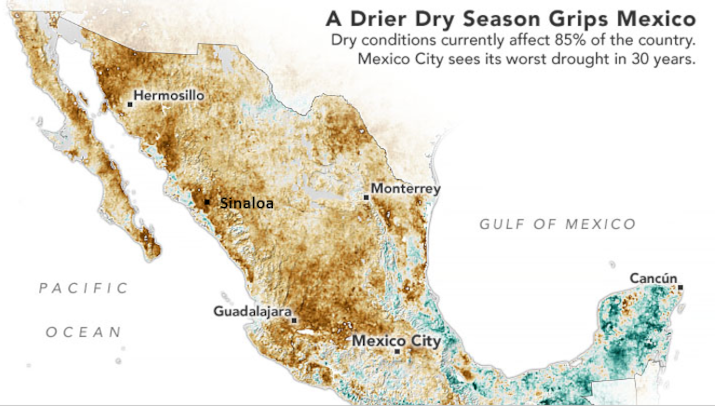
Source: NASA Earth Observatory
Other Insights That May Be of Interest…
PET Supply Chains Groan Under Global Heatwaves
From ‘Climate What?’ to Taking Steps against Climate Change
Investors, Regulators Drive Carbon Labelling Agenda
Explainers That May Be of Interest…
